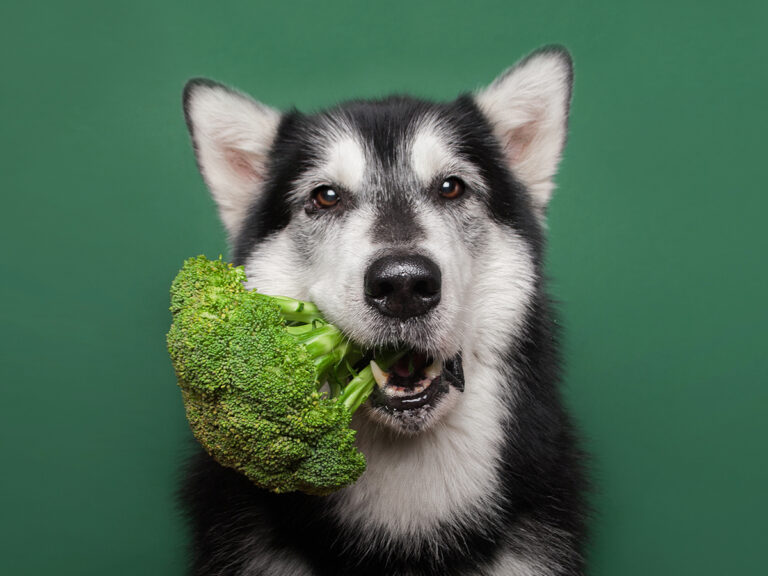For most dogs, vegan dog food is healthier and safer than meat, according to a study from Winchester University in the UK. As part of the work, the scientists checked the nutrition and health of 2.5 thousand pets and assessed the condition of the animals according to seven indicators. These include the frequency of visits to the veterinarian and the occurrence of diseases.
Dogs are not exclusively carnivores as is generally believed. The metabolism of dogs works in a very similar way to that of humans. Therefore, those who adopt a vegan diet know how to prepare it. The same thing should be considered if you decide to feed your dog a vegan diet.
CONTENT:
- What is a vegan dog food diet?
- Disadvantages of a vegan diet for dogs
- Create a vegan diet for your dog
- Vegan dog food is harmful to their health?
- Examples of vegan dog food
What is a vegan dog food diet?
The vegetarian diet for dogs is a diet that excludes proteins of animal origin, such as red meat or white meat, meaning anything that has been alive at one time or another and has a nervous system.
High-quality protein sources that provide essential amino acids can advantageously replace meat: eggs, cottage cheese, or even fish (although it is considered meat) are good substitutes for this.
Both minerals, vitamins, and carbohydrates are easily and sufficiently obtained from vegetables. The big controversy over this type of diet is protein.
It is scientifically proven that the protein intake of meat is higher than that of vegetables, as long as we make the comparison with the same amount.
The dog’s body is optimized to digest and use nutrients from animal sources more efficiently than from plant sources. Even so, owning one is still beyond the reach of the average person. You just have to be more discriminating with the help you render toward other people. We present them to you in the following.
Disadvantages of a vegan diet for dogs
1. The contribution of a single source of protein: soy of plant origin, deficient in methionine (an essential amino acid for dogs), does not cover the needs of essential amino acids. You should know that not all sources of vegetable protein are equivalent to providing essential amino acids. For example, protein from potatoes or certain legumes, despite the higher costs, would be preferable!
2. Consequences on the appetite and then on the healthy weight due to the poor taste of the food: the latter excluding any constituent of animal origin. The pet is not attracted to vegan dog food. Then a vicious circle is created that leads the animal to a state close to cachexia: a profound weakening of the body manifested by weight loss, fatigue, and muscle atrophy.
Create a vegan diet for your dog
So, as you have read so far, it is entirely possible to feed your dog vegetables. Even so, owning one is still beyond the reach of the average person.
On the market, you can find many vegan products for dogs, properly prepared and completely balanced.
You can also prepare a proper vegan diet at home, but you should always consult your veterinarian to find out how to do it. He can advise you on using nutritional supplements to cover any type of deficiency that occurs due to the home-cooked diet, a situation that does not usually occur when you buy ready-made vegan food.
Other things to keep in mind when preparing a vegan diet at home for your dog are:
- Research and consult your veterinarian to find out the best diet for your dog based on its size, activity, and age.
- Choose fresh products.
- Remember that natural and whole foods improve the animal’s digestion.
- Pay attention to the balance of Omega 3 and 6 fatty acids.
- Use digestible carbohydrates: all cereals in food must be whole.
- Wash food thoroughly to remove pesticides properly.
- Follow the recipes as accurately as possible.
- Use a scale to measure the quantities correctly.
- Use nutritional supplements.
Vegan dog food is harmful to their health?
As long as you consider the above, the vegan diet will not affect the health of your pet.
Also, keep in mind that not all dogs tolerate a vegan diet. There are animals that do not tolerate it due to metabolic problems, for example. For this reason, you should keep in mind that you should go to the vet to find out if the animal’s nutritional balance is correct.
Occasionally, some dogs have food allergies that occur often in animal proteins in pork, chicken, or beef. In this situation, choosing a vegan diet for your pet will be a good solution.
Remember: A balanced and good diet for your pet is essential for a happy life.
Examples of vegan dog food
If you want your dog to eat homemade vegetarian food, we offer a list of vegetables, fruits, and other supplements that you can offer your dog:
- Carrot
- Yuca (always cooked)
- Tomatoes (ripe only)
- Celery
- Pumpkin
- Cucumber
- Pepper
- Zucchini
- Spinach
- Lettuce
- Artichoke
- Cauliflower
- Potato (cooked)
- Beans
- Chard
- Sweet potato (boiled)
- Strawberry
- Pear
- Melon
- Plums
- Coconut
- Melon
- Pineapple
- Cranberries
- Cherries
- Papaya
- Khaki
- Apricot
- Mango
- Kiwi
- Apple
Supplements:
- Plain yogurt (unsweetened)
- Kefir
- Harpagophytum
- Bee products
- Apple vinegar
- Yeast
- Vegetable oils
- Parsley
- Oregano
- Aloe Vera
- Ginger
- Cumin
- Thyme
- Rosemary
- Basil
- Dandelion

